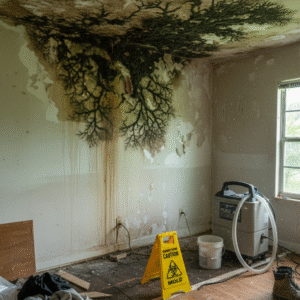Building a home is one of the most significant investments a person will ever make. In Melbourne, where the housing market is competitive and property values are high, ensuring that homes are built with the highest levels of quality and compliance is crucial. Homeowners expect not just aesthetic beauty but also safety, durability, and long-term reliability.
So, how do Melbourne home builders achieve this balance of quality craftsmanship and legal compliance? The answer lies in a combination of strict regulations, licensed professionals, advanced construction practices, rigorous inspections, and homeowner involvement.
In this article, we’ll explore the entire process—from permits and building codes to inspections, risk management, and warranties—so you’ll have a clear understanding of how Melbourne home builders deliver homes that meet both your expectations and the law.
1. The Foundation of Trust: Why Quality and Compliance Matter
When it comes to home construction, cutting corners is never an option. Melbourne builders emphasize quality and compliance because:
-
Safety Comes First – A poorly constructed home poses risks to occupants, from structural failures to fire hazards.
-
Protecting Investments – Homes are among the largest financial commitments people make. Compliance ensures property value retention.
-
Legal Protection – Builders and homeowners alike avoid costly disputes, fines, and penalties when construction aligns with regulations.
-
Reputation in the Industry – Melbourne builders thrive on reputation. Delivering quality, compliant homes earns trust and future business.
Simply put, quality ensures a safe home, while compliance ensures a legal one. Together, they create homes that last for generations.
2. Understanding Melbourne’s Building Regulations and Standards
Melbourne’s construction industry is guided by some of the strictest regulations in Australia. These include:
-
Victorian Building Authority (VBA) – Oversees builder licensing, building permits, and compliance monitoring.
-
Building Act 1993 (Victoria) – Provides the legal framework for construction across the state.
-
National Construction Code (NCC) – Sets minimum standards for health, safety, and sustainability.
-
Australian Standards (AS) – Ensure that materials, plumbing, electrical systems, and construction methods meet national benchmarks.
🔑 Key Difference: Compliance is mandatory (laws and codes), while quality control practices go beyond compliance to achieve superior results.
3. The Role of Licensed Builders and Contractors
Hiring the right professionals is the first step toward compliance.
-
Licensed Builders – Must be registered with the VBA. This ensures they have the skills, training, and insurance to carry out building work legally.
-
Accreditations and Certifications – Builders often hold additional qualifications in sustainability, design, and advanced construction methods.
-
Insurance Coverage – Builders must hold domestic building insurance, protecting homeowners if the builder cannot complete the project.
-
Risks of Unlicensed Work – Engaging unlicensed workers may result in fines, unsafe structures, and denial of occupancy permits.
Choosing a licensed Melbourne builder means choosing accountability.
4. Quality Control Measures in the Construction Process
To maintain quality and compliance, builders follow rigorous processes at every stage.
Pre-Construction: Planning and Permits
-
Site inspections and soil testing to assess land conditions.
-
Engineering reports for foundation design.
-
Council approvals and building permits before work begins.
During Construction: Stage-by-Stage Checks
-
Slab Stage – Checking foundation strength, waterproofing, and drainage.
-
Frame Stage – Ensuring walls, beams, and roof structures align with engineering designs.
-
Lock-Up Stage – Assessing windows, doors, and roofing for weatherproofing.
-
Fixing Stage – Checking interior elements like plastering, electrical, plumbing, and joinery.
-
Final Stage – Comprehensive inspection before handover.
Post-Construction: Final Inspections & Handover
-
Independent surveyor issues a Certificate of Occupancy.
-
Builder provides statutory warranties.
-
Homeowner walkthrough to ensure satisfaction.
Each step acts as a checkpoint against errors and defects.
5. Material Standards and Supplier Partnerships
The saying “a home is only as strong as its foundation” extends to materials.
-
Builders use Australian Standard (AS) certified materials for durability.
-
Preference for energy-efficient and sustainable products (e.g., double-glazed windows, eco-friendly insulation).
-
Reliable supplier partnerships reduce risks of defective or counterfeit products.
-
Bulk purchasing from trusted suppliers also ensures consistency in quality.
By combining compliance with smart procurement, Melbourne builders minimize risks and maximize longevity.
6. Technology and Innovation in Ensuring Quality
Modern construction in Melbourne is tech-driven.
-
Digital Project Management Tools – Track milestones and compliance requirements.
-
Building Information Modeling (BIM) – Simulates construction to avoid design errors.
-
Drones – Capture aerial site inspections to monitor safety and progress.
-
Smart Sensors – Monitor concrete curing, temperature, and humidity levels.
These tools reduce human error and provide data-backed insights into construction quality.
7. Compliance with Safety and Environmental Standards
Builders must balance construction efficiency with safety and sustainability.
-
WorkSafe Victoria enforces Occupational Health & Safety (OH&S) requirements.
-
Workers undergo mandatory safety training before working on-site.
-
Environmental compliance includes 6-star energy ratings for all new homes in Victoria.
-
Builders adopt eco-friendly designs, such as rainwater harvesting, solar readiness, and sustainable materials.
This ensures compliance today while also future-proofing homes for tomorrow.
8. Third-Party Inspections and Certifications
Independent oversight ensures that compliance is not just self-reported.
-
Building Surveyors – Appointed by the builder or homeowner to issue permits and approvals.
-
Independent Inspectors – Hired by homeowners for unbiased quality checks.
-
Certificates of Occupancy – Legal requirement before homeowners can move in.
-
Ongoing Audits – Builders may undergo random checks by the VBA to ensure compliance.
This system creates a multi-layered safety net against poor construction practices.
9. How Builders Manage Risks and Defects
Even with strict controls, defects can occur. Melbourne builders handle risks through:
-
Defect Liability Periods – Usually 3 to 12 months after handover for repairs.
-
Statutory Warranties – Cover structural defects for up to 10 years.
-
Dispute Resolution – Homeowners can approach Domestic Building Dispute Resolution Victoria (DBDRV) if issues arise.
-
Proactive Maintenance Programs – Some builders offer post-handover support for long-term peace of mind.
Managing risks ensures trust doesn’t end at handover—it continues for years.
10. Homeowner’s Role in Ensuring Quality
Builders aren’t solely responsible—homeowners also play a role.
-
Ask builders about their compliance processes and certifications.
-
Request copies of permits and occupancy certificates.
-
Attend walkthroughs during staged inspections.
-
Review contracts carefully before signing.
Engaged homeowners are empowered homeowners.
11. Choosing the Right Home Builder in Melbourne
Your choice of builder determines the success of your project.
-
Red Flags: Unlicensed operators, vague contracts, reluctance to show permits.
-
Checklist: Licensing, insurance, previous work portfolio, client testimonials.
-
Transparency: Builders who provide updates and reports are more reliable.
-
Reputation: Look for consistent positive feedback across independent platforms.
The best builders don’t just construct homes—they build trust.
Conclusion
In Melbourne, home builders operate within a rigid but essential framework of quality and compliance. From licensing and permits to materials, inspections, safety protocols, and post-handover warranties, every step is designed to protect both homeowners and the industry’s reputation.
A compliant builder ensures your home is safe and legal. A quality-focused builder ensures it’s also durable and comfortable. Together, they deliver a property that not only meets today’s standards but will stand strong for decades to come.
When selecting your Melbourne builder, remember: compliance is non-negotiable, and quality is the mark of true craftsmanship.
Frequently Asked Questions (FAQs)
Q1. What regulations must Melbourne home builders comply with?
Builders must follow the Victorian Building Act 1993, National Construction Code (NCC), and Australian Standards, with permits issued by local councils.
Q2. How do builders ensure construction quality during each stage?
They conduct stage-by-stage inspections (slab, frame, lock-up, fixing, final), often supported by independent surveyors.
Q3. What happens if a builder does not follow compliance standards?
Non-compliance can result in fines, legal disputes, costly repairs, and denial of the Certificate of Occupancy.
Q4. How can homeowners verify if their builder is licensed in Melbourne?
By checking the official Victorian Building Authority (VBA) register.
Q5. Do Melbourne builders provide warranties on construction?
Yes, statutory warranties apply under Victorian law, covering structural issues for up to 10 years.
Q6. What role do third-party building inspectors play?
They provide independent verification that the construction meets required quality and compliance standards.
Q7. Are sustainable building practices mandatory in Melbourne?
Yes, all new homes must meet at least a 6-star energy rating, with additional eco-friendly initiatives encouraged.




